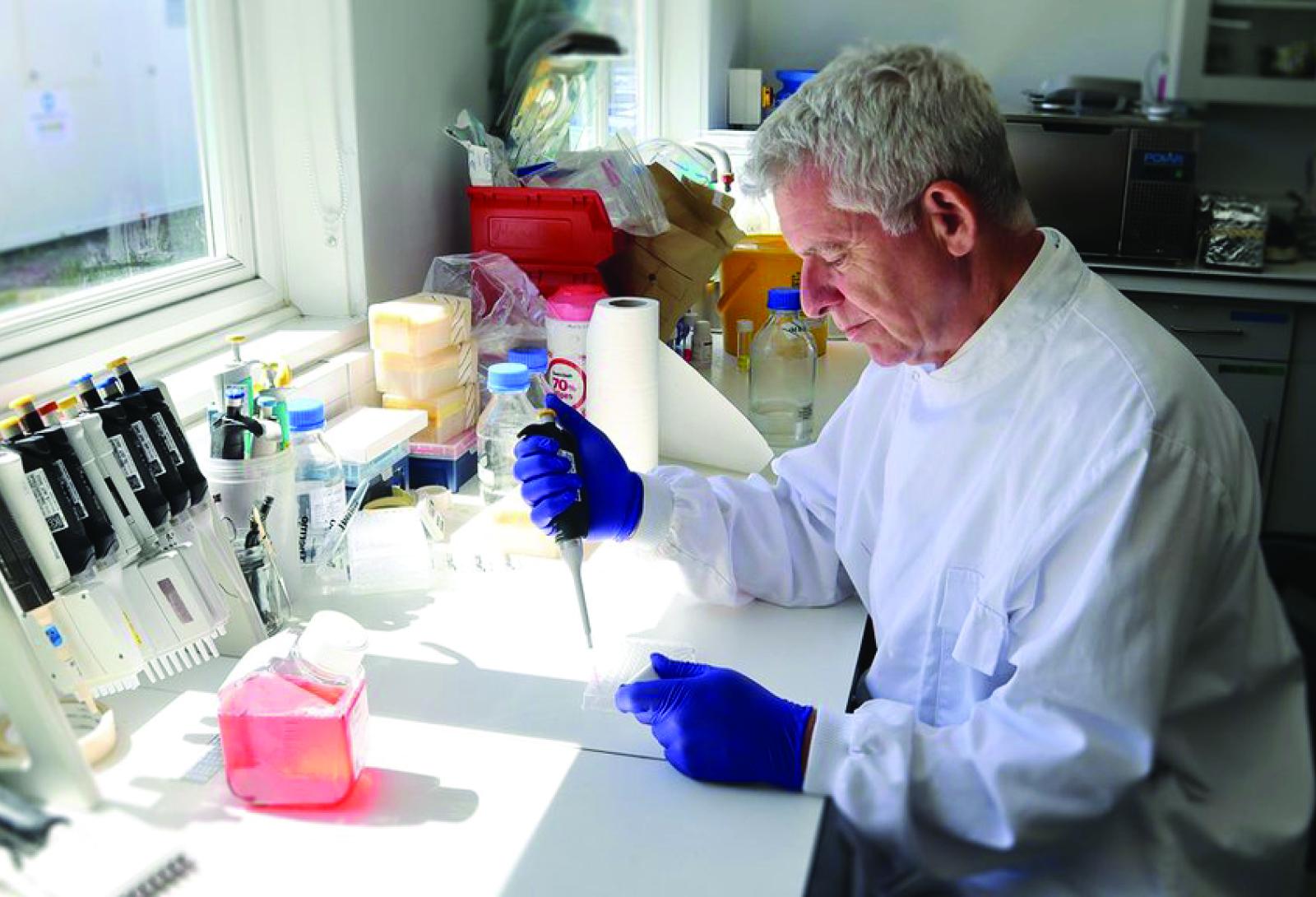Free online learning for adults: click here
Free online learning for adults: click here


Virologist Professor Ian Brown OBE talks to Nescot about his time at the college
Professor Brown got a job as a junior laboratory technician at what is now the Animal and Plant Health Agency (APHA) as a teenager. A condition of his job was that he took a Higher National Diploma at Nescot, so he enrolled on a qualification in Applied Biology in the 1970s, later progressing to a Masters’ Degree in Immunology. From there he took a PhD, and is now an internationally-respected scientist, Director of Scientific Services at APHA, and he leads the UK government’s response to bird flu. He was awarded an OBE for services to animal health and welfare in 2020.
“I really enjoyed the HND at Nescot,” Professor Brown said. “It was a great introduction to all the theory and principles, as well as what to do practically. The labs were much better than other colleges, and the overall learning environment was excellent. The lecturers were enthusiastic and inspiring – they genuinely cared about their students, and wanted the best for them. The HND was a thorough and broad base, and I think that’s an excellent way to start your training.”
After finishing his HND, Professor Brown said he was ‘fed up with studying’. However, under the guidance of his tutors he reconsidered his career plans, and enrolled on an MI Biol, specialising in Immunology. “The lecturers really got me through it,” he said. “I owe a lot to them. I wouldn’t be where I am now without them, because the MI Biol gave me the springboard I needed to do my PhD, so that I could progress my career.”
Professor Brown worked his way up at APHA, and is now Director of Scientific Services, leading more than 1,000 staff and helping to direct the UK response to avian flu, or H5N1. The world is currently going through its worst-ever outbreak, and scientists are working to understand why. Professor Brown is also leading a new research consortium, which brings together eight different institutions in order to help scientists understand more about how to control the spread of the disease. Professor Brown is also Director of APHA’s International Reference Laboratory, which provides expert advice to countries across the globe on how to spot and deal with outbreaks.
“I really enjoy the challenge,” Professor Brown said. “Covid-19 has shown how important it is for countries to work together on surveillance, intelligence and standards of diagnostics, as well as dealing with outbreaks. Avian flu is a major risk for animal health and welfare, but there is also a local and national economic impact as well.”
During the pandemic, Professor Brown helped to pioneer a new way of testing for Covid, using saliva rather than swabs. The so-called LAMP method is simpler, faster and cheaper than PCR tests, and was developed in partnership between APHA, the NHS, the University of Southampton and Southampton City Council. The method was extensively trialled as a community-wide surveillance programme initially, and is still in use by some NHS trusts as a way of checking infection levels in staff. “I was really proud to be involved,” Professor Brown said. “We were able to use our expertise when there was a national need. It was a good example of scientists working together for public health.”
Professor Brown said the career advice he gives to people at the beginning of their professional journey is to ‘start broad’. “Because of my experience at Nescot, I always recommend to people that they get a breath of experience early on,” he said. “From there you can choose to specialise if you want to. If you focus too early on it can end up closing doors to you.” Professor Brown said his career journey is a testament to education. “I started as a junior technician,” he added. “I’m proof that you can come in with O-Levels, and go all the way up. That shows the power of education.”